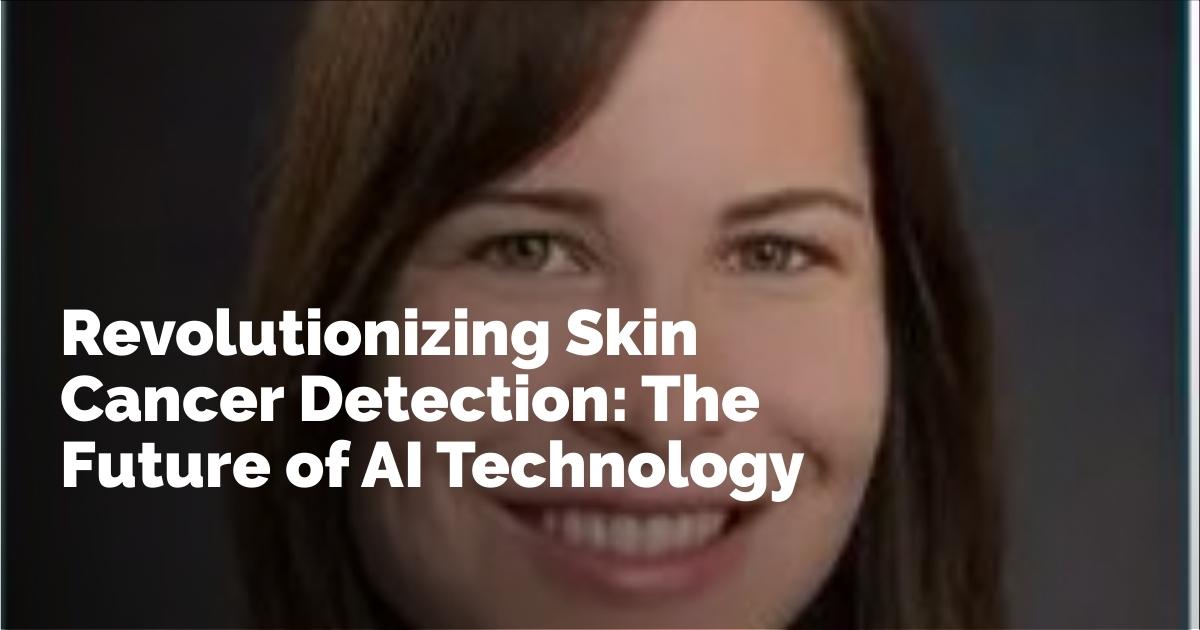Advancements in AI for Skin Cancer Detection: A New Era in Dermatology
Skin cancer remains one of the most prevalent types of cancer worldwide, posing a significant challenge for early detection and treatment. Recent advancements in artificial intelligence (AI) technology are revolutionizing the landscape of dermatology, offering promising solutions for accurate and timely diagnosis. Dr. Rebecca Hartman, an esteemed assistant professor of dermatology at Brigham and Women's Hospital and Harvard Medical School, provides insight into this exciting development.
The Role of AI in Dermatology
Emerging AI-powered devices are increasingly being integrated into dermatological practices. Dr. Hartman, who has extensively researched AI applications in skin cancer detection, highlights the significant potential these technologies hold for improving diagnostic accuracy. One such device, the DermaSensor, employs elastic scattering spectroscopy to assess cellular and subcellular characteristics of skin lesions. This innovative technology aims to aid clinicians in distinguishing early-stage skin cancers from benign lesions.
Comparative Analysis: AI vs. Traditional Diagnostics
Dr. Hartman led a groundbreaking study evaluating the sensitivity and specificity of the DermaSensor device in comparison to traditional diagnostic methods conducted by dermatologists and pathologists in a high-volume dermatology center. The study revealed that AI-based technologies like the DermaSensor could potentially match the diagnostic accuracy of seasoned practitioners, offering a reliable and faster alternative for initial screenings.
Elastic Scattering Spectroscopy: A Closer Look
The DermaSensor utilizes elastic scattering spectroscopy, a cutting-edge technique that evaluates how light scatters when it encounters various cellular structures. This approach delivers a detailed analysis of skin lesion characteristics, enabling the detection of minute changes in tissue that might indicate malignancy. Such precision facilitates early intervention, which is critical in successful skin cancer treatment.
Enhancing Primary Care with AI
The integration of AI-based technologies at the primary care level represents a transformative step in dermatology. By enabling primary care providers to assess lesions efficiently, these technologies may reduce unnecessary referrals to specialists and lead to earlier detection of skin cancers. This shift not only streamlines patient care but also alleviates the burden on specialized dermatology centers.
Future Prospects of AI in Skin Cancer Detection
The progress witnessed in AI-assisted dermatology tools, like the DermaSensor, signals a promising future for skin cancer detection. Dr. Hartman expressed optimism about the potential impact of AI on healthcare. These technologies are not limited to identifying cancerous lesions; they also possess the capability to evolve and adapt their algorithms to further hone diagnostic precision.
Challenges and Considerations
Despite the promising advancements, integrating AI into dermatology comes with challenges. Data privacy, algorithmic bias, and the necessity for rigorous clinical validation are pivotal considerations. Ensuring that AI tools complement rather than replace clinical judgment is essential for maintaining high standards of patient care.
Conclusion: AI as a Catalyst for Change
The advent of AI in dermatology marks a significant milestone in the battle against skin cancer. With ongoing research and technological refinement, AI-based tools hold the potential to redefine early detection and diagnosis protocols. Dr. Hartman's insights underscore the transformative role AI could play in enhancing dermatological practices, ultimately improving patient outcomes and advancing global skin health.
In summary, while challenges remain, the integration of AI in dermatology offers an exciting frontier with the promise of significantly advancing the early detection and treatment of skin cancer. As the technology continues to evolve, it is poised to become an indispensable facet of modern healthcare.
출처 : Original Source

